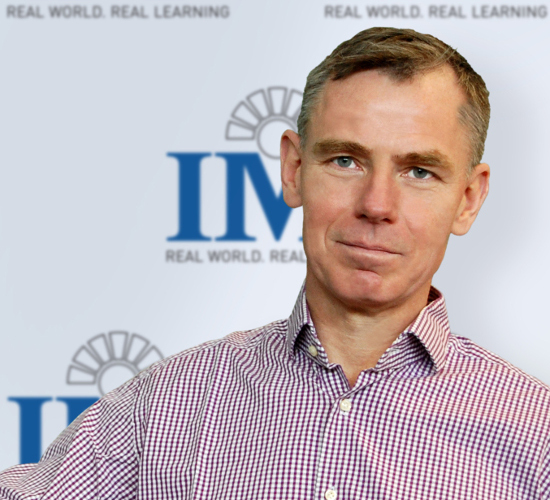
IMD’s executive education: The Swiss alternative
The Swiss-based business school IMD has been one of the top providers of executive education worldwide for a number of years. In the 2014 Financial Times’ ranking IMD ranked number one for the third consecutive year of open enrolment programmes.
IMD is what we’d call boutique with only 90 places for their standard one-year MBA programme and has developed a unique approach in their executive education as a conversation with Prof. Ralf Boscheck, IMD’s MBA Programme Director, shows. IMD was ranked number one in the open enrolment category for the third consecutive year.
So your success is not completely out of the blue anymore. What makes your approach to executive education so successful?
IMD works differently from nearly all other business schools in various aspects: For one, IMD’s faculty policies and incentives ensure that its professorial staff is both academically credible and practically relevant. One other notable difference is that we have no departments but work across the board. Faculty members publish in specialized domains such as law and economics, strategy, supply chain or marketing but are not organized in separate departments. Instead all faculty members need to be conversant across the virtually general management concerns and together deliver issue-problem based education.
Do you also approach customized programmes differently to other business schools?
Our focus has always been less on elementary skill building, but rather work on addressing specific problems and challenges that the company or industry faces and try to find solutions for them. And whilst we are doing this, we develop the employees’ skill sets as well.
This sounds almost more like a consulting company than a business school…
Yes, that’s right. In fact, quite a number of my colleagues spent a years in top consulting companies before returning to the more ‘academic’ world. We are driven to find appropriate solutions to real world problems and promote implementation through our teachings and publication.
What topics are the most pressing for companies currently?
There is a range of topics that are recurring – from constantly changing competitive landscapes to increasing regulatory uncertainties in a global economy that lacks viable institutions of global governance. One particular issue concerns of internationally operating companies that find it increasingly difficult to reap the benefits of both global scale and local responsiveness. More and more we are being asked to set up educational programmes to bridge the divides between headquarter views and market perspectives.
Why do more and more executives feel the need to go “back to school” despite having achieved a career of their own already?
It is often said that the vast majority of technical knowledge available to mankind today has been generated in the past 30 years. In the past a humanistic education provided a good foundation for assessing issues and decision making – in no way does this suffice today. Substantive knowledge must be linked to skills to navigate and validate webs of information. Life-long learning is not a trite cliché. If you don’t stay abreast, you are already obsolete – today.
But how can you prepare students or executives for this really quite tough work life?
We invite our alumni to participate in weekly webcasts, virtual fora and discovery events organized by us and our alumni network. For example, we are currently preparing a conference called “Navigating the Future” to offer insights into 15 global trends and their impact on existing and new business models and markets. Results will be streamed using diverse media to IMD alumni and the interested public.
Can you give one of these trends away for us already?
One trend looks at the dilemma of promoting technological advance by way of intellectual property rights and the interest of technology followers to undercut that very protection for technology and market access. This is not only about welfare implications when weighing private vs. public interests, this is also about development opportunities in emerged vs. emerging economies and the need to coordinate both in the face vital human challenges – from the spiraling costs of healthcare to resource scarcity and food protection.
Interview: Barbara Barkhausen
